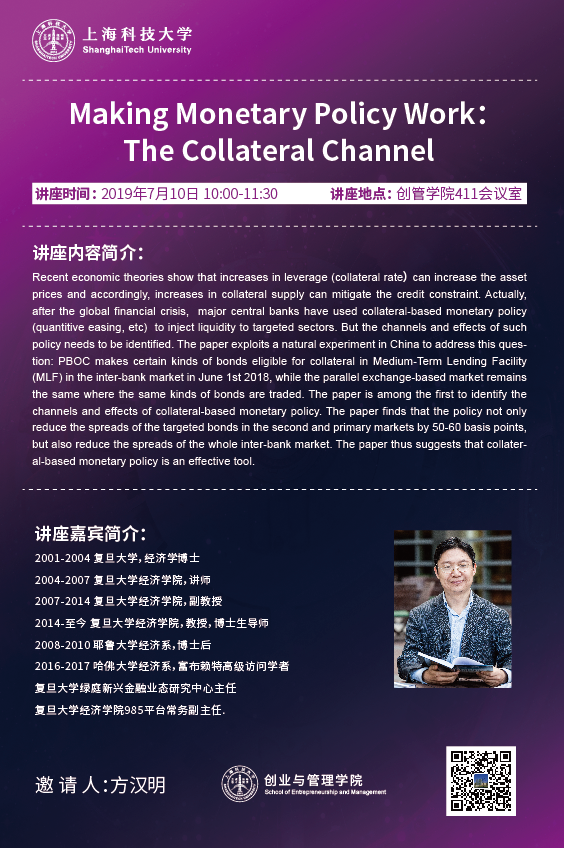讲座时间:2019年7月10日 上午10:00 - 11:30
讲座地点:创管学院411会议室
讲座嘉宾:王永钦教授(复旦大学)
邀请人:方汉明
讲座内容简介:
Recent economic theories show that increases in leverage (collateral rate) can increase the asset prices and accordingly, increases in collateral supply can mitigate the credit constraint. Actually, after the global financial crisis,major central banks have used collateral-based monetary policy (quantitive easing, etc)to inject liquidity to targeted sectors. But the channels and effects of such policy needs to be identified. The paper exploits a natural experiment in China to address this question: PBOC makes certain kinds of bonds eligible for collateral in Medium-Term Lending Facility (MLF) in the inter-bank market in June 1st 2018, while the parallel exchange-based market remains the same where the same kinds of bonds are traded. The paper is among the first to identify the channels and effects of collateral-based monetary policy. The paper finds that the policy not only reduce the spreads of the targeted bonds in the second and primary markets by 50-60 basis points,but also reduce the spreads of the whole inter-bank market. The paper thus suggests that collateral-based monetary policy is an effective tool.
讲座嘉宾简介:
Dr. Yongqing Wang is a professor in School of Economics at Fudan University. He received his Ph.D. in economics at Fudan University in 2004. He was a Fulbright Senior Visiting Scholar, at the Department of Economics, Harvard University in 2016-2017.
His current research focuses on Economic Theory, Financial Economics, Development Economics, Applied Microeconomics.




